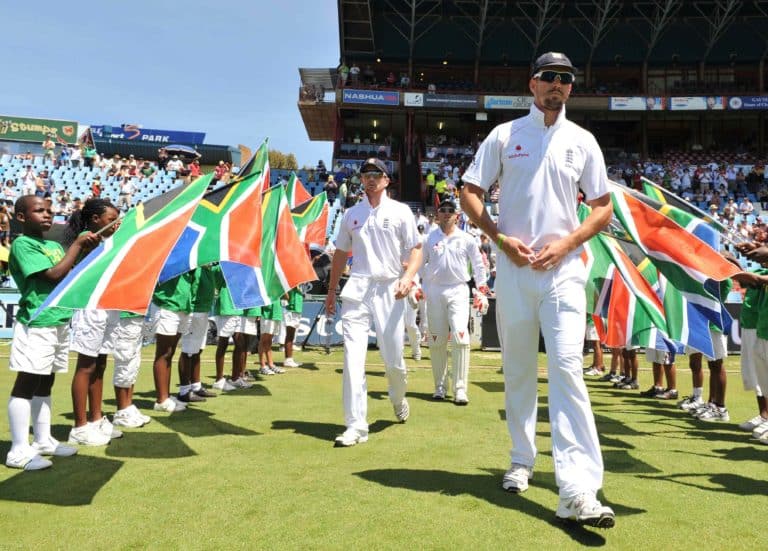Four-day Tests will rob Test cricket of the knockout blows that have shaped the classic five-day battles over the years, writes Gary Lemke.
Well done South Africa. That is what Test cricket is all about. Get yourself into a winning situation and then apply the knockout. It remains the ultimate challenge in a sport where mistakes are magnified and mental attrition is as important as the physical aspect. A victory by 340 runs … an emphatic response to the Lord’s capitulation a week earlier.
It doesn’t matter that both matches were done and dusted inside four days. That in itself is a by-product of how the game has speeded up and batsmen whose techniques aren’t explored in T20 and limited-overs matches, are rudely exposed. Just look at the way Keaton Jennings was bowled by Vernon Philander in England’s second innings and you’ll see that Jennings doesn’t have the technique to be a Test opener.
There is even continued talk about Quinton de Kock opening the Test batting. Let’s hope it doesn’t become anything other than talk.
Test cricket is the ultimate ‘test’ of two international teams’ resolve. It’s the equivalent of the classic 15-round boxing fights, the likes of which spawned the Oscar-winning Rocky series and allows us decades later to digest the magnitude of Muhammad Ali’s trilogy with Joe Frazier, culminating in the 1975 Thrilla in Manila which was called off after 14 rounds.
South Africa’s greatest-ever boxer, Brian Mitchell, got better the longer a fight went, his supreme conditioning and ‘slow poison’ body shots breaking his opponent down in the ‘championship rounds’. To warriors like that, 12 rounds was the equivalent of four-day cricket and 15 rounds was Test cricket. It sorted the men from the boys.
Which is why it’s interesting to read the thoughts of Kevin Pietersen, one of modern cricket’s game changers. Following day three of the second Test at Trent Bridge, Pietersen tweeted: ‘Test cricket needs a shake up’. A day later, a troll – who later deleted the tweet – replied, ‘you said yesterday cricket needs a shake up #muppet’. Pietersen has never been a shrinking violet and replied, ‘it does! Yesterday’s play was [series of zzz emojis]! Wouldn’t have been if it was a four-day game’.
One of Pietersen’s greatest admirers, close friends and unashamed promoter of an England recall for the 37-year-old, is Piers Morgan, a media personality with nearly six-million twitter followers.
Following the third day at Trent Bridge, he endorsed Pietersen’s view that ‘Test cricket needs a shake up’ by retweeting it and gave his own view. ‘This is the most boring day’s Test cricket I’ve endured’, he said.
For someone who has an opinion on most things under the sun, but presents himself as a cricket aficionado, Morgan clearly hasn’t watched as much Test cricket as he’d like people to believe. He certainly couldn’t have been at Kingsmead on Boxing Day in 1999 when his beloved England won the toss and Nasser Hussain opted to bat first. By the end of a full opening day’s play, England had crawled to 135-2 from 85 overs, a run rate of 1.58. Hussain had been at the crease for 76 of those overs and by the end of the day he was not out on 51.
Now, THAT was boring.
Probably the most entertaining part of the day was when a bored group of fans in the 16 000-strong crowd unfurled a large banner which read, ‘My girlfriend can’t wrestle, but you should see her box’. That grew the greatest cheer.
Morgan’s definition of ‘the most boring day’s Test cricket he endured’, was watching South Africa score 268 runs in a day while losing eight wickets and then having the England openers struggling to survive four hostile overs at the close of play, as South Africa moved into an unassailable winning position. It was slow poison but at a run rate of more than three to the over, it wasn’t slow.
A day later South Africa returned to clinically finish England off in the match.
There are people who have lost appreciation for Test cricket, and have become trapped in a world where T20 dominates the sport and where 140 Twitter characters are now considered enough to make a definitive argument.
Test cricket is struggling to survive not because it’s scheduled for five days, but because it’s under attack from T20 ‘bashes’ around the world, which are attracting mercenaries who, perhaps understandably, are more attracted to the money aspect where they become overnight (rand) millionaires. It’s reported that AB de Villiers is paid the equivalent of more than R20-million to play annually in the IPL, which is a six-week T20 event, one in which the average cricket follower won’t be able to tell you who lifted the trophy two years ago.
Despite Pietersen arguing that Test cricket needs to be conducted over four days, a sizeable percentage of Test cricket in an era where T20 has sprung up, is over within four days as it is. That’s because batsmen are throwing their wickets away at an alarming rate, another by-product of T20. Would reducing a Test to four days not mean that many would be over inside three?
Pietersen himself arrived on the Test scene, making his debut in the 2005 Ashes series, still considered by many the best series of all-time.
This is how it unfolded:
First Test: Australia won by 239 runs inside four days.
Second Test: England won by two runs inside four days.
Third Test: Match drawn, Australia nine wickets down and 51 runs still needed.
Fourth Test: England won by three wickets inside four days.
Fifth Test: Match drawn, Pietersen’s maiden Test hundred (158) a match-winning series knock at The Oval.
Had Test cricket been played over four days, the world would have been deprived of one of the great Test innings, by Pietersen, on the fifth day. It was the first of his 23 Test hundreds.
Was it boring? The heck no – and I was one of those in the crowd cheering.
Photo: Duif du Toit/Gallo Images





